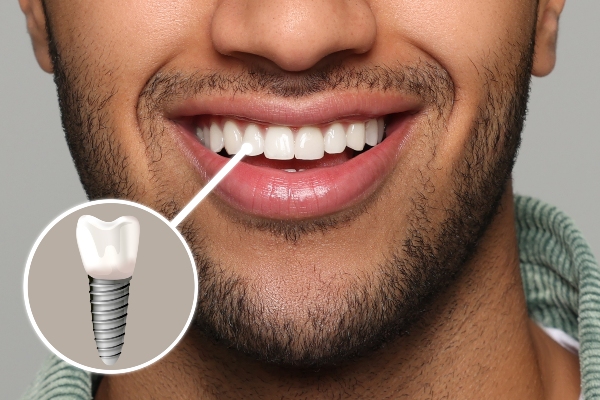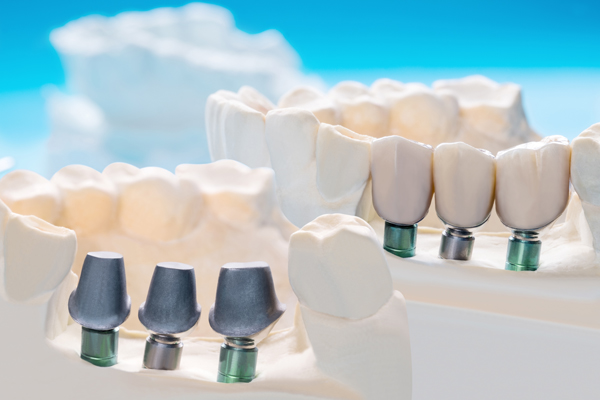Tips for Optimal Recovery from the All-on-4® Procedure

The All-on-4® procedure can significantly improve one's oral health and appearance. However, in order to achieve both, it is necessary to go through the entire process, which is known to be involved. Once the procedure is complete, the patient should prepare to undergo a lengthy recovery process. Recovery tends to be lengthy because the dental implants have to heal and fuse with the natural bone.
How to recover from the All-on-4 procedure
Outlined below are a few tips that can help with achieving optimal recovery. Keep reading to find out more!
1. Rest and relax
After an All-on-4® procedure is complete, it is most important to rest and relax a lot. Most general dentists recommend that the patient take time off from work or school. Doing so allows the entire body to heal, which is often affected after dental implants are placed. Most patients undergo anesthesia during the All-on-4®, which can take a toll on the patient's body afterward. They will likely feel tired or weak for a few hours, which is partially why rest and relaxation are important. Additionally, giving the mouth time to heal immediately after the procedure can help speed up recovery and ensure good oral health.
2. Use ice or cold compresses
Most of the time, there will be swelling or inflammation around the wound, after the procedure is complete. Using a cold compress or ice to reduce these symptoms can be extremely helpful when recovering. General dentists recommend 10 minutes with ice or a cold compress and then 10 minutes off.
3. Adjust eating habits
Another recovery tip from a general dentist is to adjust the diet after the All-on-4® procedure is complete. Eating soft foods or even all liquids can be helpful when recovering. The areas around the freshly placed implants may get irritated if normal eating habits take place. Regardless if soft foods or liquids are primarily consumed, it is best to avoid tough things like meats or raw vegetables.
4. Practice oral hygiene, gently
A lot of patients are hesitant to brush and floss like normal after oral surgery, however, it is still extremely important to do so. While the wound itself should not be touched, it is okay to rinse with saltwater. Saltwater will help keep the entire mouth clean while healing. Additionally, brushing the other teeth and flossing like normal should still be done in order to keep the rest of the mouth healthy.
5. Be careful
It is important to simply be careful after the All-on-4® procedure is complete. Carefully replacing gauze and avoiding touching the wound can go a long way in recovery.
Learn more today!
Recovering from the All-on-4® procedure can be a long process, but ultimately it is worth the wait. Any questions or concerns regarding the All-on-4 recovery process should be addressed by a general dentist, who may be able to provide specific tips. Reach out today to learn more or to get started!
Request an appointment here: https://www.southlakedentalcare.com or call SouthLake Dental Care at (904) 512-3054 for an appointment in our Middleburg office.
Check out what others are saying about our dental services on Yelp: All-on-4 Dental Implants in Middleburg, FL.
Recent Posts
All-on-4® is one of the many types of dental implants available. It involves the use of four specially-placed implants to support a full-mouth tooth prosthetics. After the procedure, patients often wonder what foods they can eat, especially since every step can affect recovery.In the next few days or weeks after the procedure, patients need to…
For those who have experienced partial or complete tooth loss, the closest option to the natural teeth is an implant-supported restoration like All-on-4®. Dental implants integrate with the jawbone, mimicking the role of the natural tooth root. This provides the optimal level of stability and durability and the stimulation required to keep the jaw healthy.Unfortunately,…
Dental implants are more secure than removable dentures. These restorations can make smiling, speaking, and eating more stable. Embarrassment and awkwardness will be non-existent once these restorations are in place. Here are the details on how dental implants can serve as solid dental replacements.Osseointegration is the process behind the strength and stability of dental implants.…
Dental implants restore functionality to the smile, all while looking and feeling like natural teeth. They achieve this by fusing with the jawbone, creating a permanent, irremovable tooth replacement solution that does not slip or slide. This benefit makes them a great option for patients seeking an alternative to traditional dentures.Dental implants are metal screw-like…


